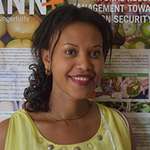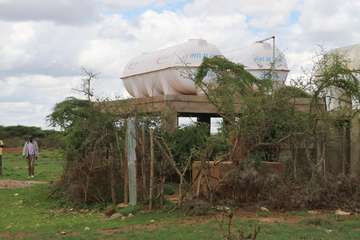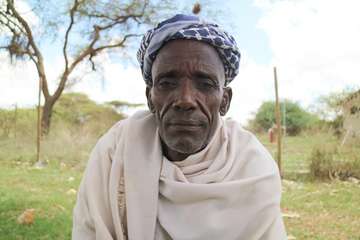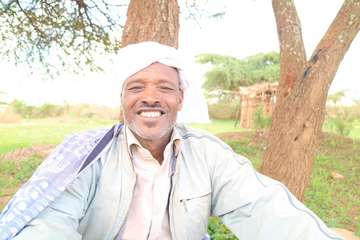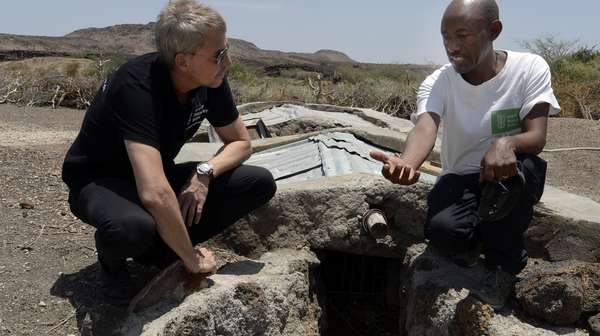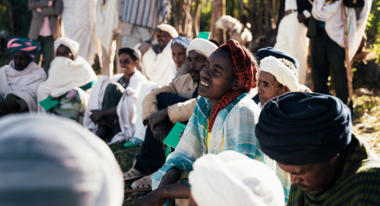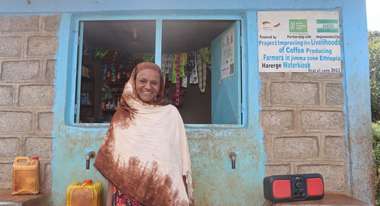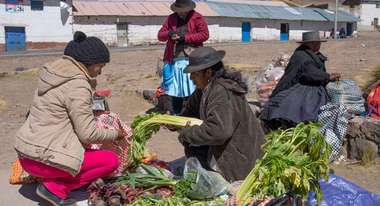Linking humanitarian aid with development
Drought and Resilience in Ethiopia
Indeed, we can make a difference.
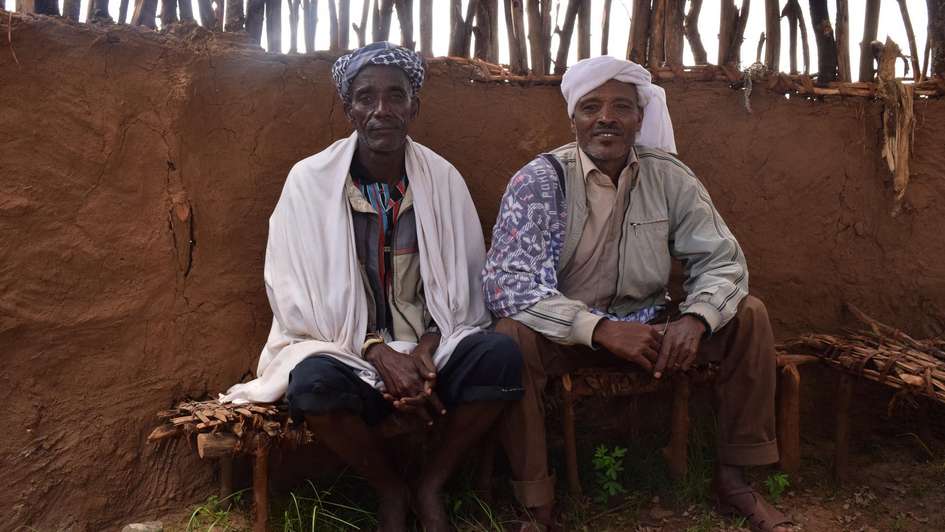
The same day I heard the heartbreaking story of Yabelo people, I also visited another area where the drought had almost no effect on people because our resilience project started in 2015.
Creating an impact on the community we are working with
Yabelo is one of the highest drought affected areas in Ethiopia. Currently, more than 450,000.00 people are affected by the drought situation and Welthungerhilfe is taking measures as drought response.
Ergo district is also one of the selected area we are working in our cross-border project „Enhancing the Resilience of Agro-pastoralists and pastoralists“. What is amazing in these area is that, the Ergo district people become untouchable by the current drought, that has instead badly affected communities just 65 km away. Why? Because they have access to the 60,000 liters‘ motorized water scheme this project constructed. It is amazing how a single project of Welthungerhilfe creates an impact on the community we are working with.
Ato Wario is 61 years old, supports 9 family members and has lived through many droughts. The last one left him with only 9 goats. „I was desperate. I couldn’t even feed my kids who would stare at my hand whenever I walked in the house hoping their father would bring something to eat. No, I was incapable and helpless as situations left me with no option.“
The community members had to travel far distances to collect water, and since this is a task normally carried out by women, they were those who suffered the most: „One lady gave birth to her child on the way without any help! We also witnessed another lady who got killed by a herd of animals, when they all rushed to drink first.“ Remembers Wario with a rough voice.
Few years ago, an NGO installed a 10,000 liters‘ water pump, but this did not meet the needs of the community. „10,000-liters for more than 40,000 people, 15,000 goats and more than 10,000 cattle? The water was never enough!“, he says. Then in 2015, Welthungerhilfe and its partner AFD (Action for Development) came and installed an additional motorized water pump, that provides an additional 50,000 liters. The newly built scheme has a separate place where the animals can drink (cattle trough) and a cloth washing basin. Now the furthest distance an individual has to travel toaccess this water scheme is less than two hours.
Wario’s life has completely changed
„Now I have 100 goats with a high production of milk. We use the dairy product for our own consumption and we sell the rest to the market“, he says. “ With the additional money, I am able to send my kids to school and eat a variety of foods. I am secured!“
Ato Dima Guyo, 55, 19 family members and member of the water committee, had also lost most of his animals and was left with 7 goats.
His responsibility includes protecting the water from any danger that may disrupt the water functionality and assuring equal treatment set among the community with the water distribution. He remembers the past as if it had happened yesterday; longer queue to obtain water; the animal embroiling among themselves to drink first and the committee nonstop providing tireless assistance.
Healthy livestock, healthy people
Now the newly built water scheme allows the committee to have a break after helping people to get as much water as they want. „The water, which we used to access was very cold for our animals. This reservoir has a warm and fresh water which is very suitable and likable by the livestocks. Now that the animals get so much regular water, their milk productivity has increased and we also think that their meat tastes better.“
The payment modality works as follows: everyday people travel to take water and every second day, they can bring their animals. An individual may pay 30 cents per Jerry can; 50 cents per goat; 50 cents per camel; 25 cents per sheep; and 50 cents per cow. People are free to fetch as much water they want too as there is no limited water source from the scheme. In the end, the committee use the collected money for the maintenance and other administrative cost to sustain the water functionality.
„The price modality determined is based on the average income an individual could get“, continues Ato Dima. „Compared to the other water schemes, this one is much cheaper and easy to access. This makes the community happy and proud.“
Once a man who lost everything, now standing with both feet on the ground
Ato Dima is now able to breed 200 goats. He also sends his kids to school from the additional money he gets from dairy product revenue. He can’t hide his pride from his smiley face while talking about the impact this water brings to his life. Indeed, he deserves to be proud; he was once a man who lost everything and with a silver lining shot, brought his two feet to the ground.
Now I know how to express the feeling of excitement and sadness at the same time. I wish copy and paste function works in this regard, so I can copy this water scheme for the drought affected people in Eleweye district to solve their problem. And or to share few goats from Ato Dima’s stock to Adi Alecha whose life is fully dependent on only one cow. I know that won’t be possible, but it’s all right to wish the impossible to feel better.




